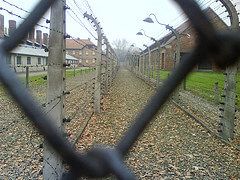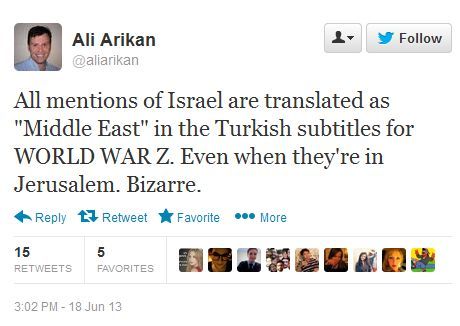 Everything you need to know about today’s coverage of Israel and the Mideast. Join the Israel Daily News Stream on Facebook.
Everything you need to know about today’s coverage of Israel and the Mideast. Join the Israel Daily News Stream on Facebook.
Today’s Top Stories
1. Hezbollah’s accused of using chemical weapons. The Free Syrian Army told Al Arabiya:
The town of Zamalka, outside of Damascus, was targeted by chemical weapons, which caused victims to choke and led to a number of casualties, according to opposition activists.
So far, this hasn’t been independently verified. Does Hezbollah now have the access and training to use to weapons of mass destruction? Might the rebels be desperate enough to draw Israel into the conflict by lying? Or something else? This could get interesting . . .
2. Bulgaria’s gumming up EU efforts to blacklist Hezbollah, reports the JTA. But the EU’s trying another round of talks at the UK’s behest, according to AFP. Meanwhile, EU foreign policy chief Catherine Ashton arrived in Israel.
Netanyahu to Ashton: If Hezbollah not terrorist group, then what is?
3. Is Taksim Park the death knell of the Turkish model of democracy? Asharq al-Awsat‘s Tariq Alhomayed points out:
The success of the Turkish model did not only come from its economic achievements; much of its success lies in Erdogan’s distancing of the military from the political process. By threatening to use the military, Erdogan invalidates his political achievements—namely returning the military to its barracks. This achievement was what led Washington to consider Ankara as a role model that the countries of the region should follow in order to establish a common ground between Islam and democracy, and to build a strong economy.
Israel and the Palestinians
• AP updates the on Palestinian preconditions for talks. But Alan Baker argues that the PA’s preconditions have no basis in law or fact.
• After the University of Manitoba Student Union this week banned Students Against Israeli Apartheid from campus, the student paper published dueling commentaries for and against the move.
• Worth reading: When artists scapegoat Israel: An open letter to Alice Walker.
• If you watch “World War Z” with Turkish subtitles, spoken references to Israel are instead referred to as the Mideast. According to the Times of Israel, Turkish film critic Ali Arikan was told that the zombie flick’s translation and subtitles came that way from the stiffs at Paramount Pictures.
Arab Spring Winter
• A Syrian mortar hit the Israeli Golan this morning, reports the Times of Israel.
• The Assad regime is facing a cash crisis. The NY Times explains:
The pound, which traded at about 70 per dollar before the uprising against Mr. Assad began in March 2011, has been eroding gradually since then and was trading at 170 per dollar last week. Money traders in Syria and the United States said it nose-dived starting last Friday and had weakened to 220 per dollar by Monday, reflecting some chaotic selling by Syrians worried that the pound could weaken further and wipe out their savings if they did not convert to dollars or euros.
Syria experts who once estimated the Central Bank had at least $17 billion in foreign exchange reserves before the conflict now believe . . . that amount has dwindled to as little as $2 billion.
• Elliott Abrams reacts to Gen. Martin Dempsey vs. John Kerry. For more commentary, see David Ignatius and the Globe & Mail.
Rest O’ the Roundup
• From the Paris Air Show, Israel HaYom reports that Israel will be the first country to receive the US-made F-35 stealth jet fighter.
The state-of-the-art fighter aircraft, the first of which are scheduled to be delivered to Israel at the end of 2016, are also expected to be fitted with an Israeli “twist.”
 • The BBC visited Auschwitz with a delegation of Israelis. A moving, feature-length look at Israel and the Holocaust like this is a rarity.
• The BBC visited Auschwitz with a delegation of Israelis. A moving, feature-length look at Israel and the Holocaust like this is a rarity.
In the future you will still be able to read what happened when the Germans came in September 1939 to Aud’s home village of Zdunska Wola in central Poland – the public hangings of Jewish community leaders, the beatings and the systematic looting of Jewish homes.
To hear it at first hand is different.
Aud tells the story in English in short phrases. He pauses every now and then as though searching for words that will make it all seem comprehensible to someone who never lived through it, who wasn’t there.
But there are no such words.
What words could there ever be to describe the last day he saw his mother alive, 74 years ago.
• I am not making this up: Dave Barry’s in Israel, blogging his trip.
(Image of Auschwitz via Flickr/George Olcott)
For more, see yesterday’s Israel Daily News Stream.



